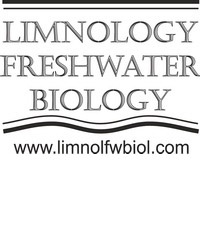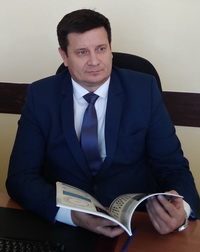Editor's preface
DOI:
https://doi.org/10.31951/2658-3518-2018-AAbstract


Dear colleagues,
The risks of climate change associated with freshwater resources increase significantly with growing concentrations of greenhouse gases. In the 21st century, along with rising temperatures, there will be an increase in the proportion of the global population suffering from scarce water resources. According to long-term estimates, the climate change during the 21st century will lead to a considerable reduction in the number of renewable resources of the surface waters, hence, strengthening the competition for water between regions. The main scientific trend of the past decades is the concept of the adaptation mechanism of aquatic ecosystems under the instability of the current global climate and the increasing anthropogenic load. Thus, most experts from Intergovernmental Panel on Climate Change (IPCC) believe that due to the climate change during the 21st century and beyond much of the freshwater species will face the high risk of extinction especially resulted from the interaction of the climate change with other stress factors, such as habitat change, overexploitation, pollution and invasive species.
In this regard, we consider extremely relevant to widely cover the issues concerning the functioning of freshwater ecosystems. The journal «Limnology and Freshwater Biology» will provide an opportunity to quickly publish the original scientific papers on the research of biotic and abiotic components of water bodies. Although most of the articles published in the journal deal with the study of lakes, we can accept the works related to the study of ecosystems of rivers, wetlands and reservoirs.
The scope of the journal comprises:
- hydrological, hydrochemical and geochemical aspects of aquatic ecosystems;
- molecular and classical biology of ecosystem research;
- systematics and ecology of aquatic ecosystems;
- natural and anthropogenic impacts on water systems and resources;
- paleolimnology and history of the environmental development;
- field and laboratory studies, and modelling.
The journal is published every two months. We invite you to take part in this journal, both as authors of various materials and reviewers.
Director of Limnological Institute SB RAS,
D.Sc. Andrey P. Fedotov
Downloads
Published
Issue
Section
License
Copyright (c) 2018 Limnology and Freshwater Biology

This work is licensed under a Creative Commons Attribution-NonCommercial 4.0 International License.

This work is distributed under the Creative Commons Attribution-NonCommercial 4.0 International License.






